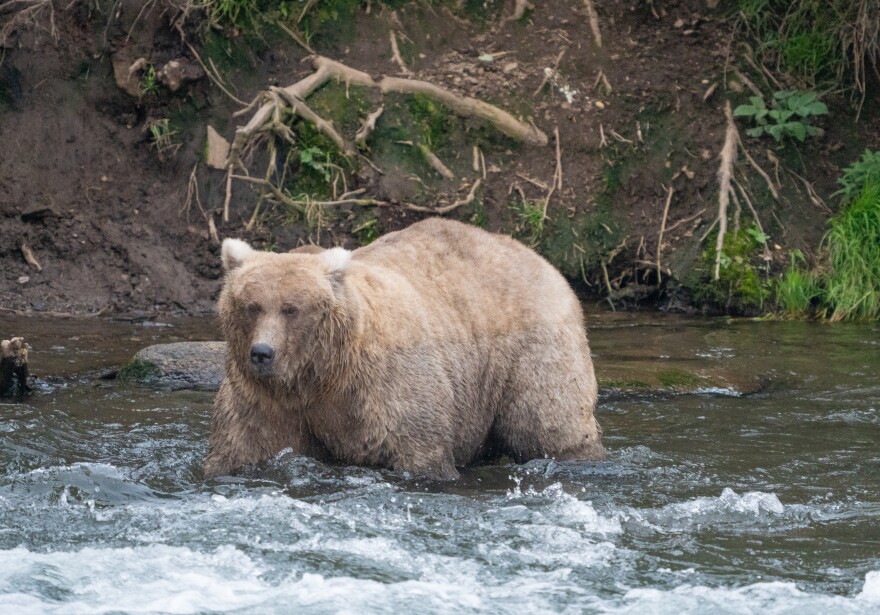Over the past week, twelve hefty bears at Katmai National Park and Preserve competed bracket-style for the adoration of animal enthusiasts around the world. Fat Bear Week has grown in popularity since its inception in 2014, this year seeing its largest voter turnout of over 1.3 million participants. The celebration brings attention to the park’s brown bear population, which can be viewed on livestream cameras around the park.
This year’s champion is Grazer, a first-time winner and two-time mother. She did not raise cubs this year, allowing her to focus more of her energy on accumulating fat. She is also one of the park’s fattest and most dominant bears, often displacing her larger, male counterparts.
Grazer first came to Katmai’s Brooks River Falls when she was a cub in 2005. She had her first litter in 2016, weaning all of her cubs. She did the same with her second litter in 2020.
“Grazer has a great track record so far, and I think her skill at fishing and her defensiveness helped her with that,” said Mike Fitz, Resident Naturalist with Explore.org who helps run the event. “People remember a lot of those stories from years past, so with her body mass changing this year, I think people were also paying attention to her life story.”
While the fat bears are the focus of this annual celebration, it also helps raise awareness for the health of Katmai and sockeye salmon in the Bristol Bay region. Without returning salmon to Brooks River Falls, there would be no fat bears.
“Each bear in Fat Bear Week is an individual with a unique story to tell, and we have that really unique opportunity to watch these bears as individuals at Brooks River,” Fitz said. “It’s an opportunity to celebrate their work as they prepare for winter hibernation, but it also celebrates the salmon that support the health and richness of Katmai’s ecosystems.”
Fitz hopes that Fat Bear Week will help people better understand and care for landscapes like Katmai. He believes that through events like these, people will be more willing to protect habitats around the world.
“I think something like Fat Bear Week, I hope, motivates people and shows people that there’s a lot still in the world that is good and worth saving if we work hard to do so,” Fitz said. “The future of brown bears and salmon in Katmai isn’t guaranteed, we have to shepherd and steward those efforts going into the future. So that, I think, is one of the major goals.”
Last year, Fat Bear Week saw voters from over 100 countries and every continent. Although they are still gathering information about this year’s competition, they expect to see similar results.




